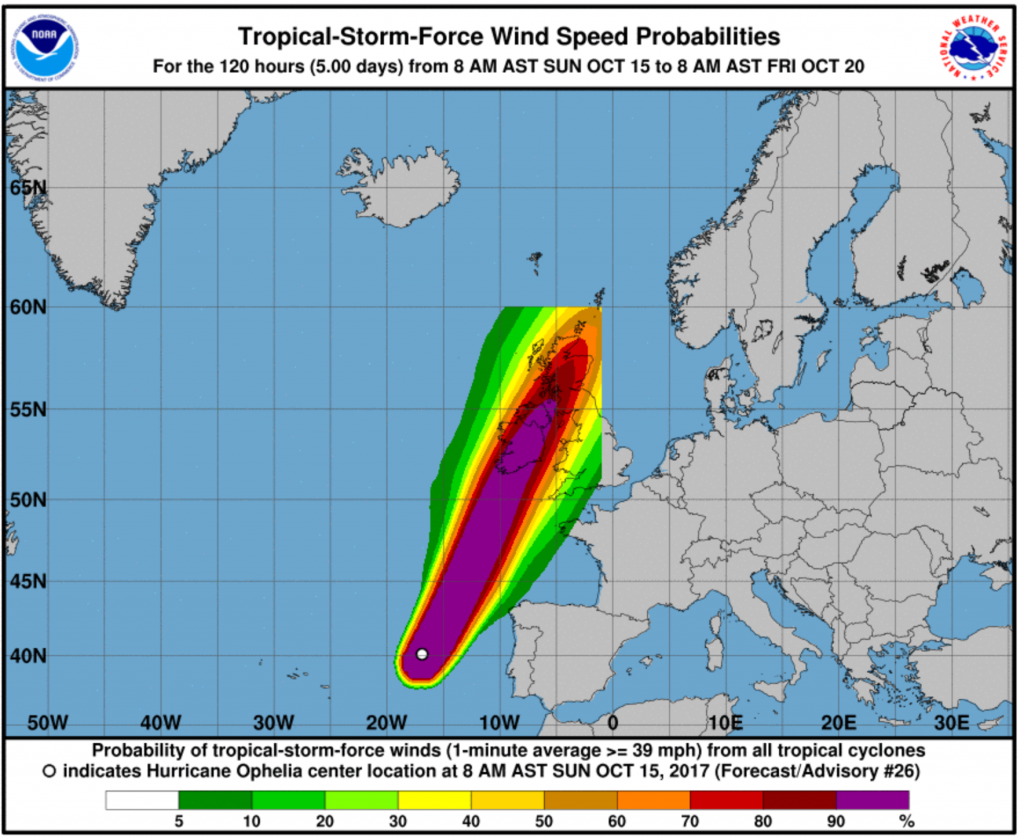November 6th, 2017
2017 is set to be the warmest year on record without the influence of El Niño, the World Meteorological Organization (WMO) said this morning.
The WMO’s provisional Statement on the State of the Climate found that average global temperature between January and September this year was 1.1°C above pre-industrial levels.
The statement – based on five independent global temperature datasets – said that 2016 will remain the warmest year on record as a result of a powerful El Niño.
The five-year period between 2013 and 2017 is set to be the warmest five-year period on record.
Long-term indicators of climate change such as increasing carbon dioxide concentrations, sea level rise and ocean acidification “continue unabated”, the WMO added.
A WMO report released last week found that concentration of carbon dioxide in the atmosphere has soared to the highest levels in 800,000 years.
Arctic sea ice coverage remains below average and previously stable Antarctic sea ice extent was at or near a record low, the WMO statement said.
Desert Drought Photo: Pixabay
High-impact Weather Events
The statement also pointed to an alarming number of high-impact weather events during the first nine months of the year.
According to Secretary-General Petteri Taalas, the organisation recorded 50 degrees-plus temperatures in Asia, “devastating” monsoon flooding and a “relentless” drought in East Africa.
“Many of these events – and detailed scientific studies will determine exactly how many – bear the tell-tale sign of climate change caused by increased greenhouse gas concentrations from human activities,” Mr Taalas said.
In Somalia, some 943,000 people have been internally displaced from November 2016 to 22 October 2017 due to drought, according to the UN Office for the Coordination of Humanitarian Affairs.
The World Health Organisation has said that the number of vulnerable people exposed to heatwaves increased by 125 million between 2000 and 2016. Thirty per cent of the world’s population now lives in climatic conditions with prolonged extreme heatwaves.

Hurricane Ophelia Photo: NOAA
There has also been a “record-breaking” number of hurricanes seem in rapid succession in the Caribbean and Atlantic this year, the WMO said.
The statement referenced Hurricane Ophelia which hit Ireland last month “more than 1,000 kilometers further northeast than any previous North Atlantic hurricane”.
The WMO Expert Team on Climate Impacts on Tropical Cyclones found that it is likely that human-induced climate change makes rainfall rates more intense, and that sea-level rise exacerbates storm surge impacts.
Bonn Conference 2017
The release of the WMO statement coincides with the launch of the opening day of the latest United Nations climate change conference which kicks off in Bonn today.
Patricia Espinosa, Executive Secretary of UN Climate Change which is hosting the Bonn conference, said that the WMO’s findings “underline the rising risks to people, economies and the very fabric of life on Earth” if countries fail to meet the goals of the Paris Agreement.
A UN Environment Programme study released last week found that governments across the world need to urgently revise their 2020 emissions targets pledges to avoid the worst impacts of climate change.
The Emissions Gap Report found that meeting current commitments under the Paris Agreement would only lead to a one-third reduction in emissions necessary to effectively tackle climate change.
“Bonn 2017 needs to be the launch pad towards the next, higher level of ambition by all nations and all sectors of society as we look to de-risk the future and maximize the opportunities from a fresh, forward-looking and sustainable development path,” Ms Espinosa said.










